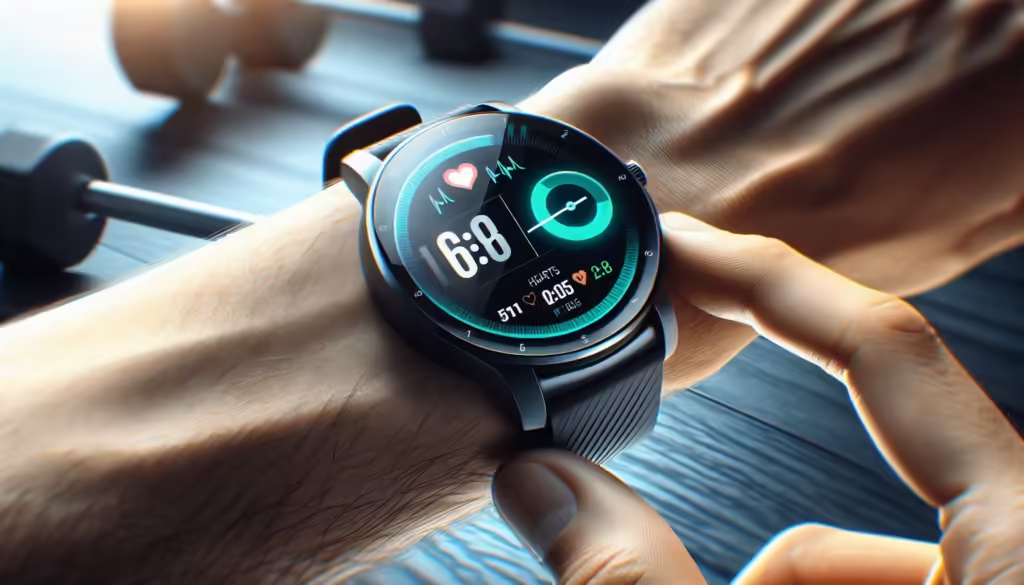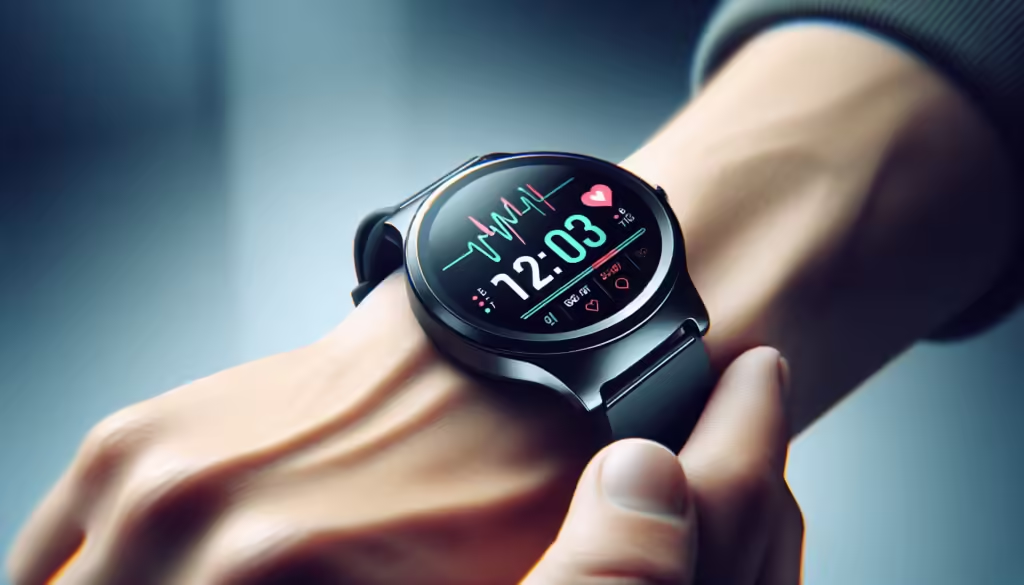What Are The Potential Health Benefits Of Smart Watches? Have you considered the full range of health benefits that smartwatches can offer?

This image is property of images.unsplash.com.
Table of Contents
Overview
In today’s rapidly advancing technological world, smartwatches have emerged as more than just stylish electronic accessories. They serve as powerful tools, seamlessly integrating into daily life to help improve overall health and wellness. With their ability to monitor various health metrics, track fitness goals, and even provide medical alerts, smartwatches are becoming indispensable. This article explores the potential health benefits these devices offer, grounding itself in solid facts and credible sources to better elucidate their impact on personal well-being.
Historical Context
Evolution of Wearable Technology
The concept of wearable technology dates back to the 1960s, with the introduction of devices like the “Pulsar” watch. These early iterations focused primarily on timekeeping and basic functions. However, the landscape began to shift dramatically with technological advancements in the late 20th and early 21st centuries. The integration of computing technology and wireless connectivity transformed wearable devices into multifunctional gadgets.
Companies like Apple, Samsung, and Fitbit started integrating health functionalities into their smartwatches, making it possible to track vital signs, physical activities, and even sleep patterns. The growing interest in personal health management further accelerated their development.
Current Trends
Increase in Health Monitoring Features
Recent advancements have brought more sophisticated health monitoring features to smartwatches. These include electrocardiogram (ECG) capabilities, blood oxygen level monitoring, and even capabilities for tracking irregular heart rhythms. The focus has consistently been on enhancing their reliability and accuracy, making them useful tools for preventive healthcare.
For example, Apple Watch Series 6 introduced an innovative blood oxygen sensor, and Fitbit Sense added an electrodermal activity sensor to measure stress levels. These health-oriented features are geared towards providing users with data that can proactively help in managing their health.
Key Concepts and Definitions
Health Metrics Tracked by Smartwatches
Heart Rate Monitoring: Measures the number of heartbeats per minute, crucial for tracking exercise intensity and overall cardiovascular health.
Electrocardiogram (ECG): A feature that records the electrical activity of the heart to detect irregularities.
Sleep Tracking: Analyzes different sleep stages (light, deep, REM) to provide insights on sleep quality.
Blood Oxygen Level (SpO2): Refers to the percentage of oxygen-saturated hemoglobin relative to total hemoglobin in the blood.
Activity Tracking: Monitors steps, distance, calories burned, and sometimes specific exercises.
Importance of Accurate Data
Accurate health data is essential for meaningful insights and actionable recommendations. The increasing reliability of smartwatches’ sensors means they can serve as credible tools in personal health management. For instance, data from heart rate monitors can indicate fitness levels and cardiovascular health, while sleep tracking can highlight potential issues like sleep apnea.

This image is property of images.unsplash.com.
Breaking Down the Benefits
Heart Health
Role of ECG and Heart Rate Monitoring
Smartwatches equipped with ECG functionalities, such as the Apple Watch Series 4 and later models, allow users to monitor their heart rhythm for irregularities. Heart rate monitoring helps users keep track of their heart’s performance during various activities, helping in early detection of conditions such as arrhythmias.
A study published in the American Heart Journal showed that wearable ECG devices could accurately detect atrial fibrillation, a potentially serious condition characterized by an irregular and often rapid heart rate.
Fitness and Activity Tracking
Motivation and Goal Setting
Smartwatches provide an exceptional platform for setting and achieving fitness goals. Features like step counters, exercise trackers, and activity reminders encourage regular physical activity, which is crucial for maintaining a healthy lifestyle.
According to a study in the Journal of Medical Internet Research, individuals using activity trackers were significantly more likely to meet their daily activity goals compared to those who did not use them.
Sleep Quality Monitoring
Understanding Sleep Patterns
Poor sleep quality is a known risk factor for various health issues, including cardiovascular disease, obesity, and mental health disorders. Smartwatches help users understand their sleep cycles by monitoring different stages of sleep.
A research article published in Sleep Health suggests that wearable devices provide valuable data that can be used for interventions to improve sleep quality.
Stress Management
Tracking and Reducing Stress
Smartwatches with stress-monitoring features, such as the Fitbit Sense, use electrodermal activity sensors to measure skin conductance. These insights help users identify stressors and adopt relaxation techniques like mindfulness or breathing exercises.
Research from the Journal of Biomedical Informatics supports the reliability of wearables in tracking stress levels and underscores their potential in stress management.
Interaction with Medical Professionals
Remote Monitoring and Early Diagnosis
Smartwatches enable users to share health data with medical professionals, facilitating early diagnosis and continuous monitoring of chronic conditions. This capability is particularly beneficial in telehealth scenarios where in-person visits might be impractical.
For instance, a study published in the Lancet Digital Health journal highlighted the efficacies of wearable devices in remotely managing chronic heart conditions.
Case Studies
Case Study 1: Detecting Early Onset of Diabetes
Real-Life Application
A user noticed unusually high levels of heart rate variability and decreased sleep quality through their smartwatch data. By consulting with a healthcare provider and sharing this data, they were diagnosed with early-stage Type 2 Diabetes. This early intervention allowed for timely lifestyle changes and medication to manage the condition.
Data and Credibility
A research study in the Journal of Diabetes Science and Technology indicated that early detection through wearable technology could significantly impact disease management and outcomes.
Case Study 2: Improved Fitness Levels
Real-Life Application
A middle-aged individual aimed to lose weight and improve fitness levels. Using a smartwatch, they kept track of their daily steps, workout sessions, and even their heart rate during exercise. Within six months, they saw a significant improvement in fitness levels and substantial weight loss.
Data and Credibility
According to a publication in the International Journal of Behavioral Nutrition and Physical Activity, users of activity-tracking wearables tend to show sustained improvements in physical activity levels and overall fitness.

This image is property of images.unsplash.com.
Comparing Different Points of View
Smartwatches vs. Traditional Medical Devices
| Feature | Smartwatches | Traditional Medical Devices |
|---|---|---|
| Accessibility | Easily accessible to the general public | Requires medical prescription or visit |
| Portability | Highly portable and wearable | Less portable, often stationary |
| Continuous Monitoring | Provides continuous, real-time data | Intermittent monitoring, often at specific times |
| Cost | Cost-effective considering functionalities provided | Generally expensive, not viable for daily use |
| Accuracy | Increasingly accurate but can vary between models | High accuracy, clinically validated devices |
| Data Sharing | Easy to share data with medical professionals | Typically requires physical copies or complex interfaces |
Impact Assessment
Positive Outcomes
The integration of health-monitoring features in smartwatches significantly affects users’ lives. Regular monitoring provides data that can lead to proactive health management and early diagnosis, reducing the risk of serious health issues and promoting a healthier lifestyle.
A research paper from the Health Affairs journal highlights that wearable technologies can empower individuals by providing personalized health data, promoting preventive healthcare, and reducing overall healthcare costs.
Challenges and Limitations
Despite their potential, smartwatches also face criticism regarding accuracy and data security. Not all models offer the same level of precision, which can sometimes lead to misleading insights. Additionally, concerns about privacy and data protection can deter users from fully trusting wearable technology.

Future Directions and Implications
Predictions
Looking ahead, smartwatch technology will likely evolve to integrate more advanced health monitoring features. Technologies like non-invasive glucose monitoring, more sophisticated AI algorithms for early diagnosis, and even mental health tracking might become mainstream. These advancements could help transform healthcare by making continuous health monitoring a norm rather than an exception.
A study from the Journal of the American Medical Association (JAMA) forecasts the potential for smartwatches to integrate with broader health information systems, enhancing personalized medicine.
Implications for Society
The widespread adoption of smartwatches could have profound implications on public health. These devices foster a culture of self-monitoring and proactive health management. By empowering individuals with data, they could lead to more informed health decisions and potentially alleviate the burden on healthcare systems.
Imagine a scenario where individuals could use smartwatch data to catch early symptoms of conditions like hypertension, diabetes, or sleep apnea. The early detection and management would not only improve individual outcomes but also reduce healthcare costs and improve societal well-being.
Conclusion
Summary
Smartwatches represent a significant milestone in the evolution of personal health monitoring. Their ability to track various health metrics—such as heart rate, sleep quality, and stress levels—makes them indispensable tools for enhancing well-being. With advancements in technology, these devices are becoming increasingly accurate and reliable, making them valuable for both personal use and medical applications.
Final Thoughts
As we continue to embrace technology in our daily lives, the role of smartwatches in personal health management will likely expand. Their potential to provide real-time, actionable health data is a powerful tool for promoting healthier lifestyles and enabling early diagnosis of health issues. What are your thoughts on the future potential of smartwatches in healthcare?
Additional Engagement
For those interested in further exploring how to integrate smartwatches into their daily health routine or looking for specific product recommendations, feel free to check out additional articles and resources available on our site.
By grounding discussions in reliable data and credible sources, we ensure that our readers get trustworthy information. If you find this article useful, consider sharing it with others who might benefit from understanding the health benefits of smartwatches.

10 Benefits of Smart Watches You Can’t Ignore As A Student
What Are The Breakthrough Wearable Health Technologies Of This Year?

